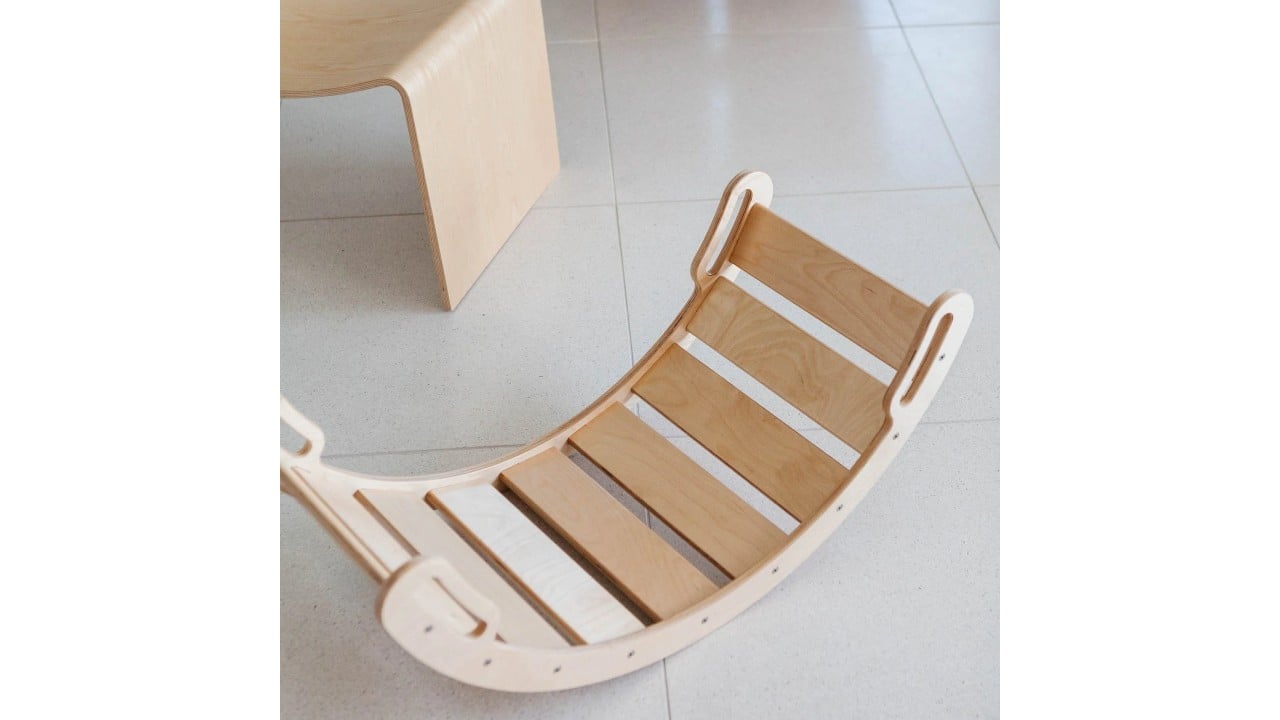
Learning life skills and independence can start early and be fun.
Setting up a nursery or playroom? Think beyond the crib and the toy storage and consider the kind of environment you want to create. The Montessori approach encourages play-based learning in organized spaces with simple, minimal decor. Create a Montessori playroom at home by following these simple guidelines.
What is the Montessori philosophy?
The Montessori method focuses on self-direction, hands-on learning and collaborative play. “Montessori is a child-centred philosophy of education,” says Valery Brown, a Toronto-based Montessori teacher. “We believe that children learn best through engaging all five senses as well as providing outlets for gross motor movement while they learn. Arguably, the most important aspect of a Montessori education is gaining independence with practical life skills through repeating real tasks.”
Montessori playroom basics
Montessori playrooms are organized, child-friendly, geared for learning and they promote independence. A simple tidy space allows kids to explore their activities deeper, helping with concentration and mastering skills. In general, a Montessori playroom:
- has a limited number of toys/activities that promote engagement over entertainment
- has everything displayed at the child’s level and a place for each item
- includes open space, and
- is a comfortable space your child enjoys
Keep it minimal
Instead of having all of your kids’ toys in the playroom, Brown recommends using a “toy library” where you rotate different toys every one to two weeks. She recommends displaying toys neatly on low shelves to keep everything within the child’s reach and encourages the use of natural materials, like wood, metal or even glass and ceramics in toys and decor. Brown suggests storing toys in baskets or on trays so they look nice and neat. “Show examples for caring for the environment and the things in it by using respect, care and caution when handling them.”
Look for open-ended Montessori toys
Seek out toys that are versatile and high quality. “An open-ended toy can be used in a variety of different ways through your child’s play depending on their imagination, creativity and interest,” Brown explains. Take Lily & River’s Little Matchables set that explores shapes, colours, memorization and fine motor skills. For young children, Brown recommends toys that focus on one skill at a time, for instance, stacking blocks for hand-eye coordination or a Pikler triangle climber for gross motor development.
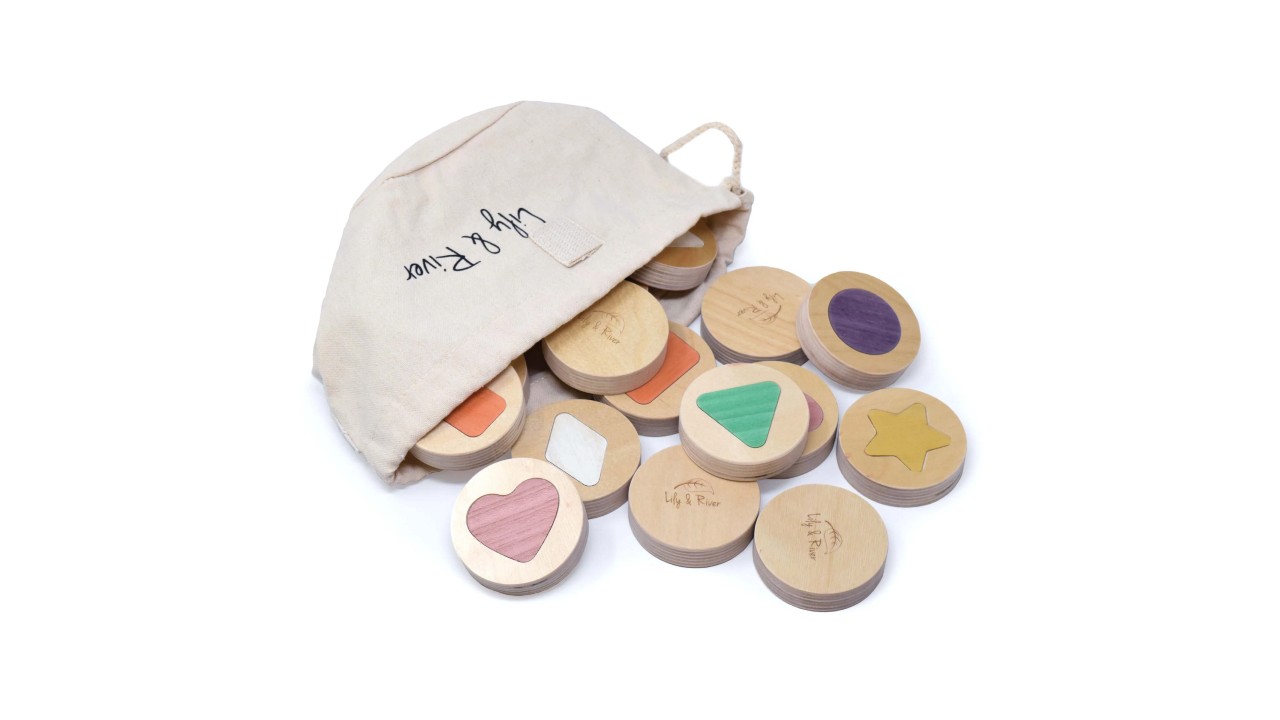
Play mats are key
Play mats are an essential tool in a Montessori room. “We believe children should not be confined to learning at a desk,” explains Brown. “They need movement to support their learning and activity mats allow them to sprawl, lay or sit cross-legged while they work.” Play mats also define work spaces from play spaces. “The play mat says: ‘This is my space, and this is how I respect and honour the activity I am using,’” she says. Check out Wee Gallery’s forest play mat.
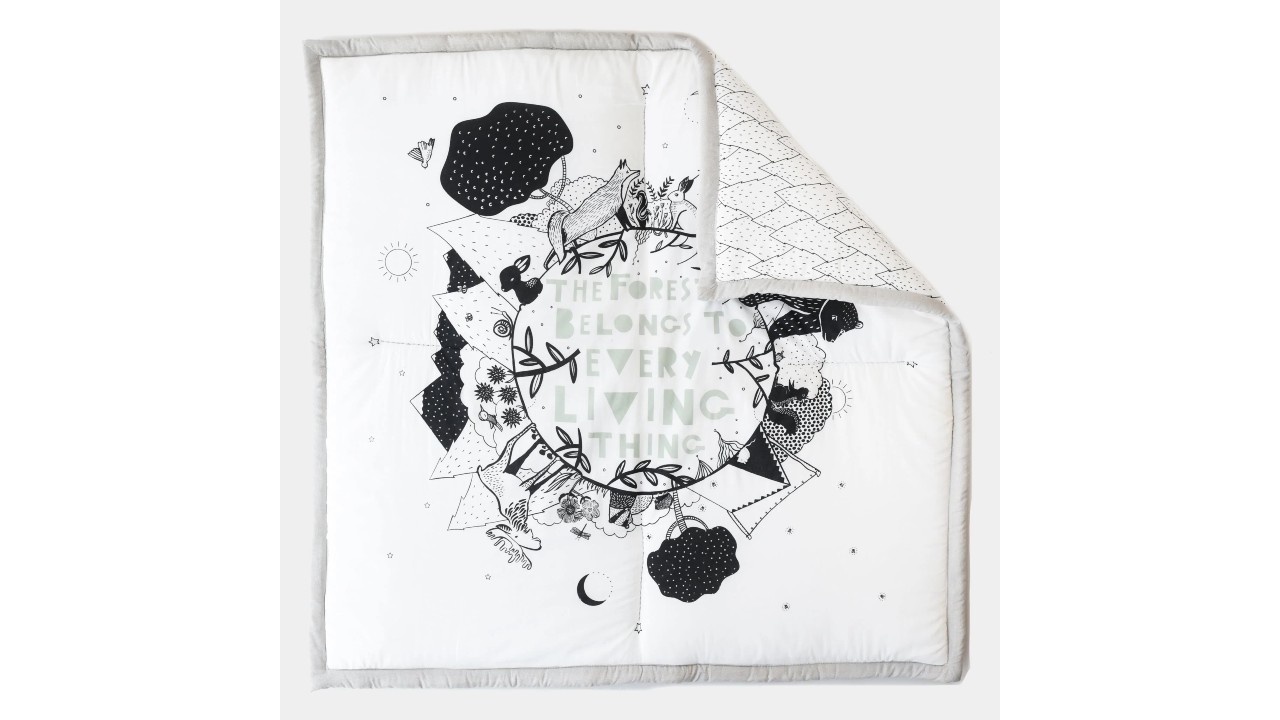
Consider a climber
Climbing can help children with spatial awareness, muscle development, gross motor skills and academic enhancement in memory, higher levels of concentration and mood stability. Wooden climbers like Lily & River’s Little Dome or All Circles’ PlayBox Little Climber both offer compact indoor climbing fun. “Giving children the freedom to climb grows their bodies, their brains, their abilities, their problem-solving skills and even their social skills,” says Brown. “It’s one of the best ways to let kids use their energy.”
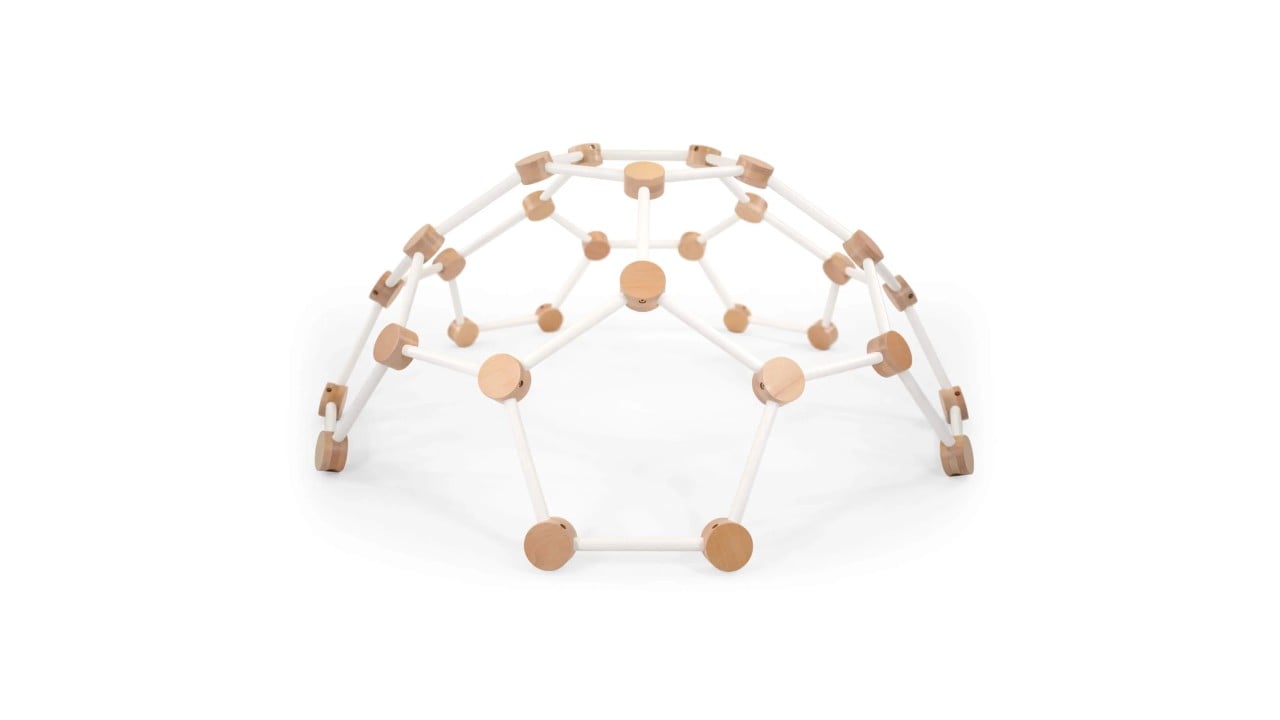
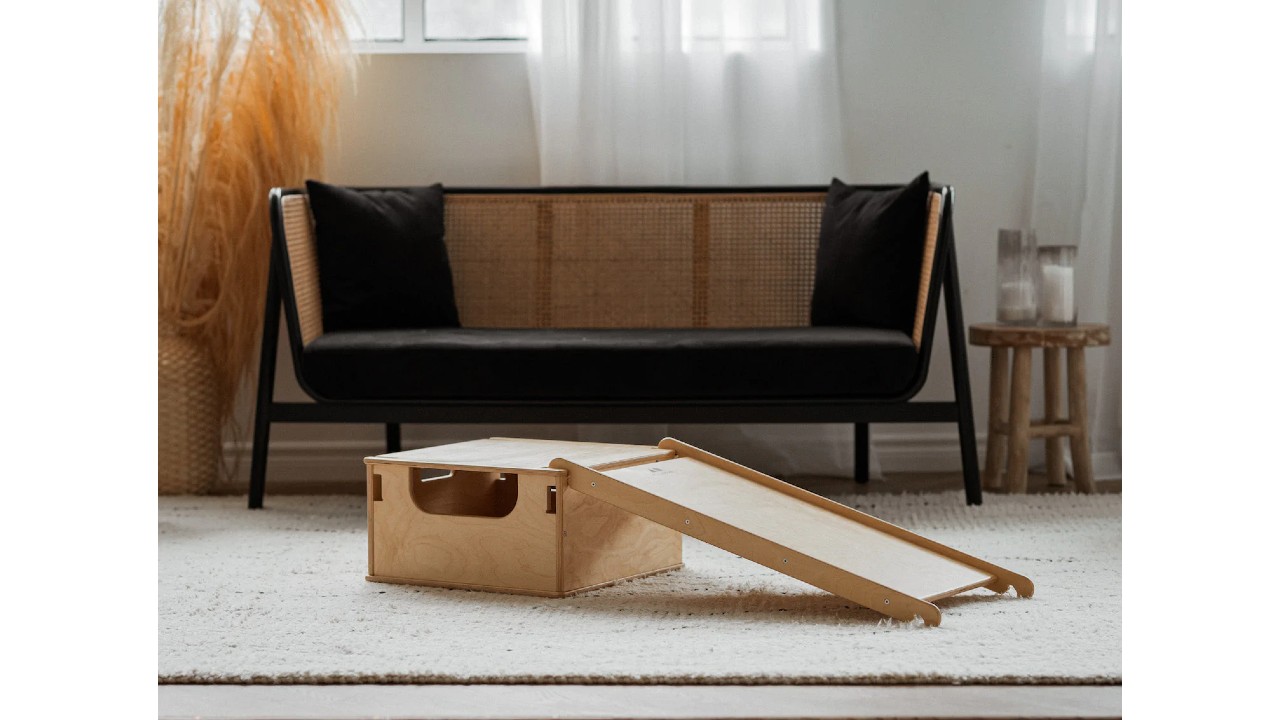
Promote self-sufficiency
Only include items that your child can use themselves so they don’t need to rely on your help. “For example, if you have craft supplies or art materials, don’t put things the child is not able to use and clean up on their own in their reach,” advises Brown. For example, All Circles’ Little Board + Cutter is perfect for kids to slice play-doh or slime independently or to help prepare food for snack time.
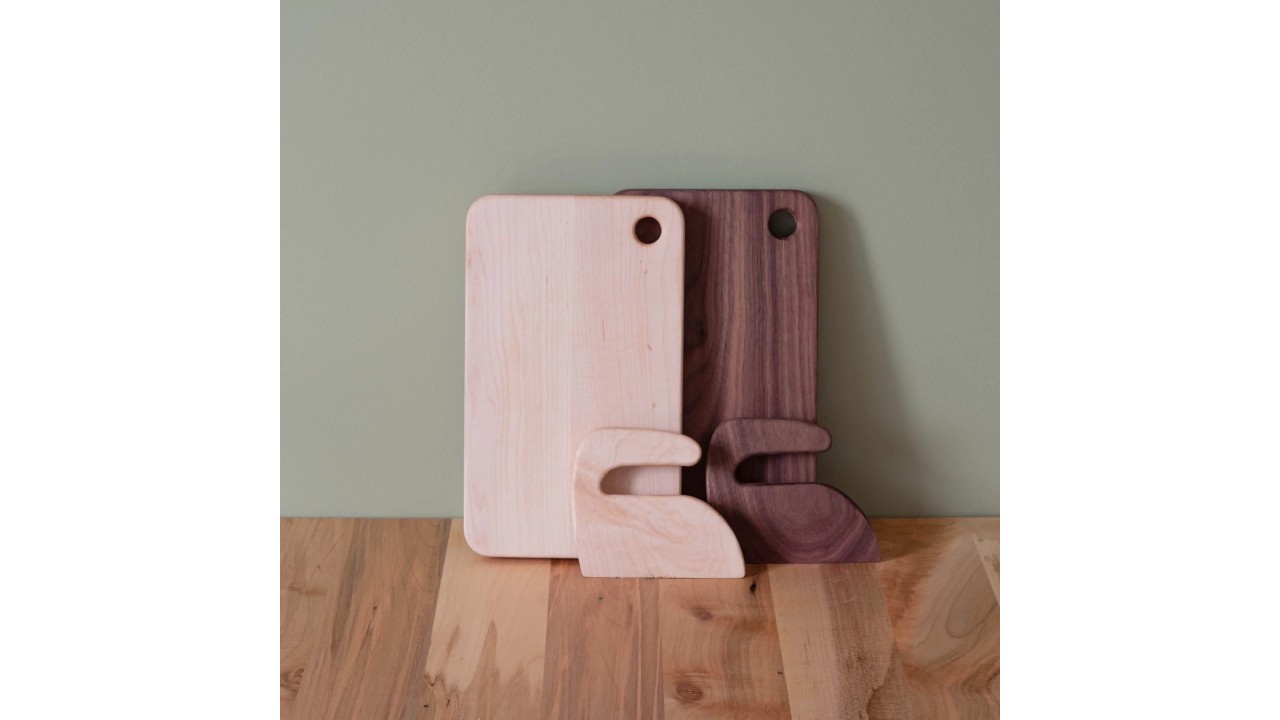
Incorporating these aspects will help you create an interactive play and learning space in your home. Shop more playroom essentials, from Peeka & Co., a curated marketplace for modern parenting values.
Wee Gallery Canvas Growth Chart
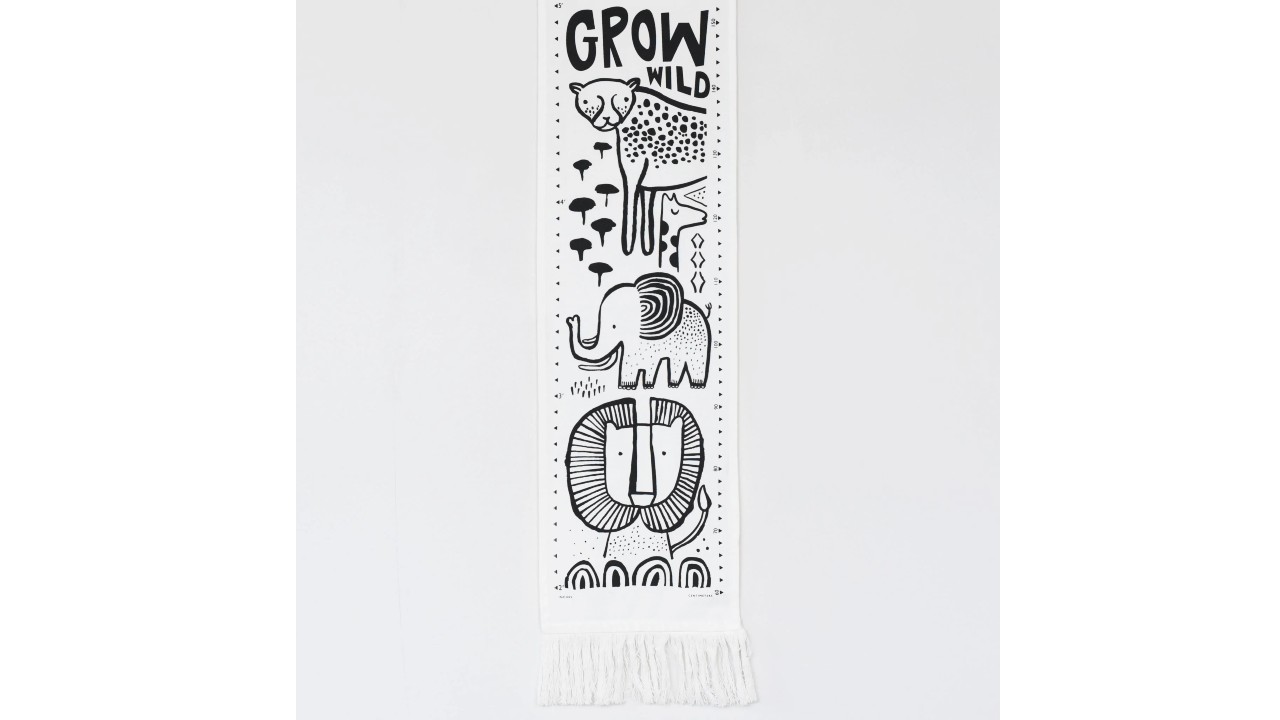
Tiny Tales 12-piece Montessori Tools
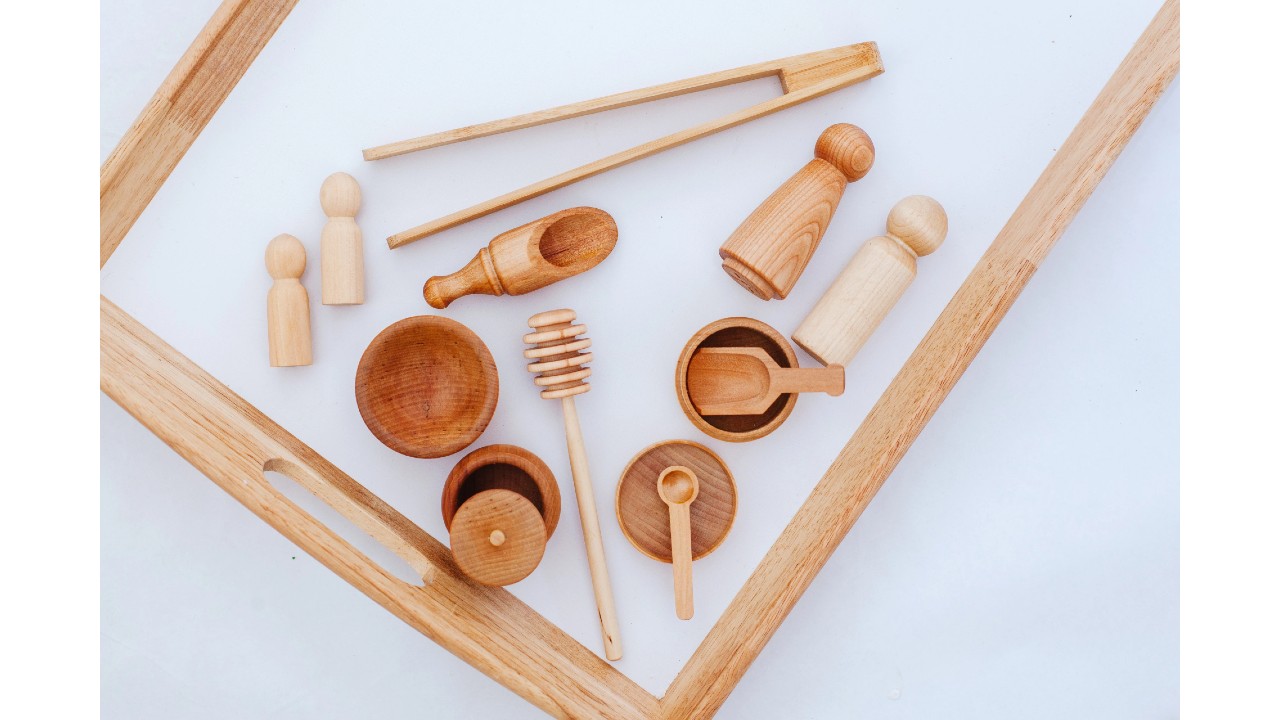
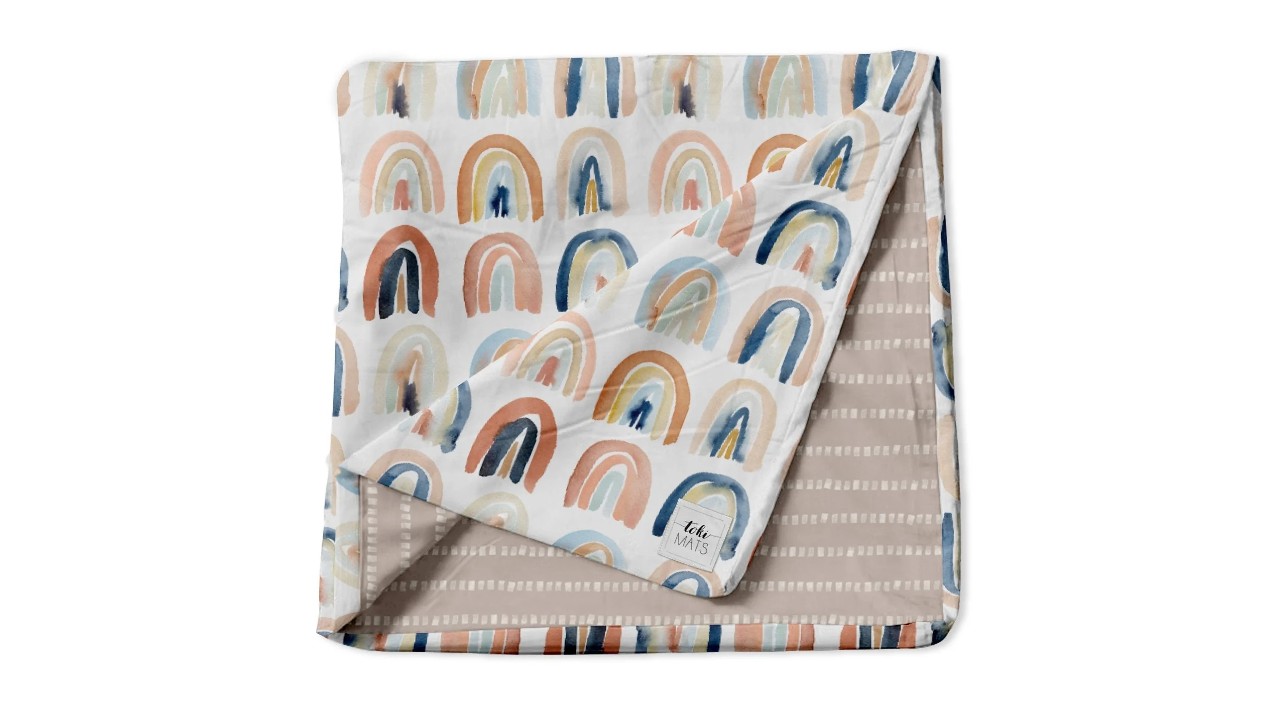
All Circles PlayArch – Wooden Climber and Rocker
